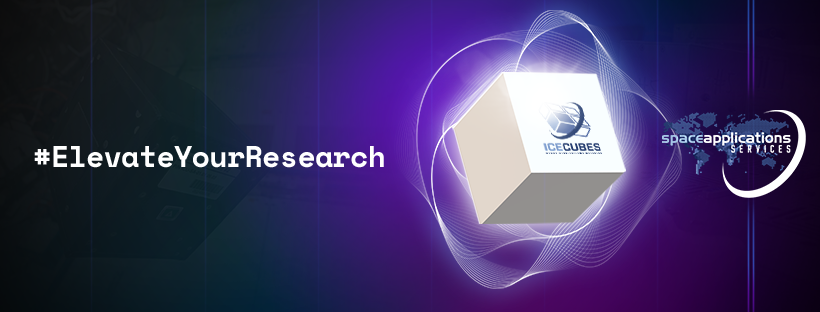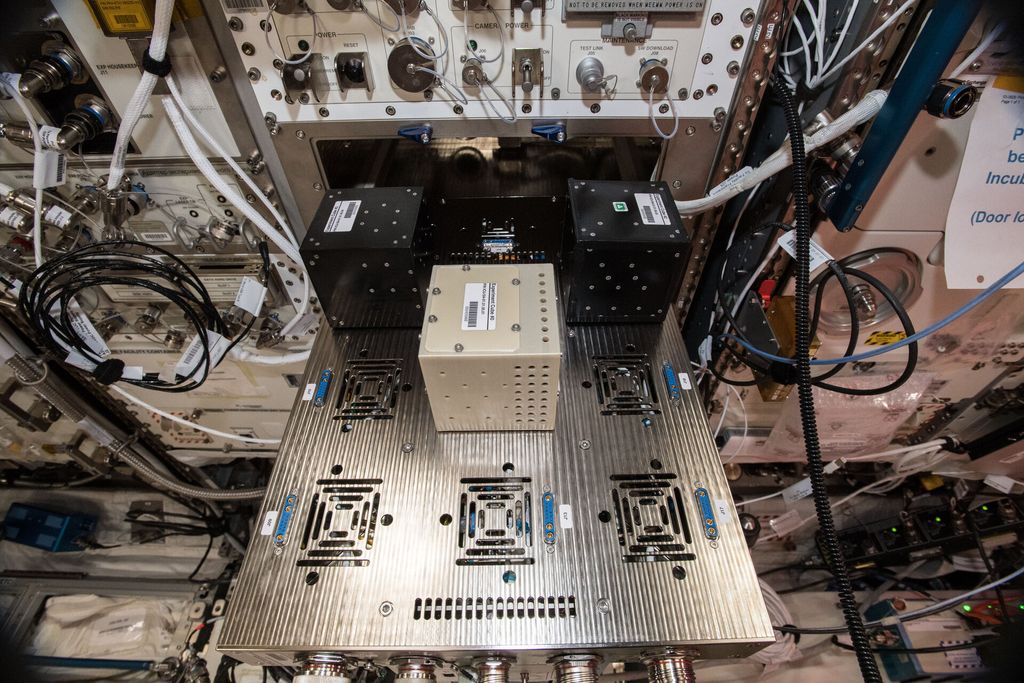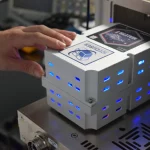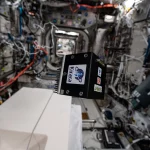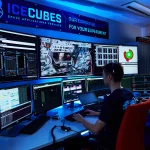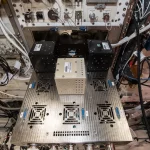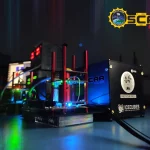ICE Cubes Service (by Space Applications Services)

-
- Space Applications Services
-
- Research & Product Development,
- In-Orbit Demonstration and Verification,
- Testing & Qualification,
-
- Microgravity,
- https://www.icecubesservice.com/
- Low-Earth Orbit (LEO)
- ISS
Service Description
ICE Cubes is a commercial service that provides fast, flexible, and affordable access to space and in particular to the International Space Station for research, technology demonstrations, and educational projects. Designed to support a wide range of users, from academic institutions to private companies, ICE Cubes makes microgravity research more accessible through a streamlined, end-to-end process that can include payload development, integration, launch, in-orbit operations, and return. The ICE Cubes Facility, launched in 2018 by SpaceApps in partnership with ESA, is a modular research platform in the ISS Columbus lab enabling microgravity experiments through a flexible, plug-and-play system. Having hosted over 40 payloads to date, it supports remote monitoring and control, serving sectors such as health, life sciences, materials, agri-food, and technology.
Within this comprehensive end-to-end service, covering everything from concept development to flight and operations, ICE Cubes Service also offers flight-proven, ready-to-use hardware solutions. These modular assets significantly reduce development time and complexity for customers, making access to microgravity research faster, more reliable, and cost-effective.
Objectives and Mission
From its conception, the aim of the ICE Cubes Service has been to make access to the International Space Station easier, more flexible and modular, and commercially viable. Designed for a broad range of users, from researchers and educational institutions to startups, industry, and emerging space nations, it enables fast-track, affordable, and repeatable experimentation in microgravity across disciplines. By offering a streamlined, end-to-end service with flight-proven ready-to-use hardware and real-time connectivity, ICE Cubes lowers the barriers to space-based R&D, supporting quicker iteration cycles and expanding global participation in science, technology, and education in orbit. Active for over 7 years (since 2018), the service has built significant experience that continues to shape and expand its capabilities, offering reliable, repeatable access to the unique environment of microgravity for a growing range of missions and investigation areas.
Significant Achievements
First Public-Private Partnership of its kind with ESA: ICE Cubes is the first European public-private partnership for commercial access to the ISS. This unique collaboration with ESA set a new precedent for enabling sustainable, agile and market-driven use of low Earth orbit.
Real-time payload access from Earth: The ICE Cubes platform is the only commercial service to offer customers live, two-way access to their payloads on the ISS at all times. This enables real-time monitoring, commanding, and adaptation of experiments during flight.
Rapid, end-to-end payload deployment: ICE Cubes dramatically shortens the path to space. With integrated support and reusable hardware, experiment timelines are reduced from years to months – enabling fast, flexible missions for research and industry.
Key partner in all Axiom missions: ICE Cubes has supported all Axiom missions to date, facilitating hardware implementation and high-profile crew interactions making use of our Media Set. This includes live downlinks and education-focused events from onboard the ISS.
Breakthroughs in space research: The platform has enabled multiple space research firsts, including the first COVID-19 drug crystallization in microgravity and the first demonstration of cellulose synthesis in space, advancing science and biotech.
Democratizing access to the ISS: By lowering barriers to entry, ICE Cubes has flown missions from countries and institutions with no prior spaceflight experience. This includes national firsts for Malta, Hungary, and Poland, among others.
Over 40 missions/projects and counting: Since its debut in 2018, ICE Cubes has operated over 40 missions / projects to the ISS, covering biology, material science, AI, education, and cultural outreach, demonstrating the breadth and scalability of the service.
Long-running protein crystallization platform: Home to the Kirara service (in partnership with JAMSS), delivering high-quality protein crystallization in microgravity, having completed its 6th ISS mission to date (as of June 2025), supporting research and education internationally.
In-house hardware innovation: Developed reusable, flight-proven hardware platforms like the Science Cube, offering fast and flexible mission integration with simplified logistics and operations.
Commercial live media from ISS: First to offer live event capability from the ISS via the Media Set, supporting educational outreach, public engagement, and commercial visibility from orbit.
Accelerating technology readiness in Orbit: The ICE Cubes Facility has been successfully used for in-orbit demonstration and validation, helping raise the Technology Readiness Level (TRL) of both hardware and software solutions, speeding up their path to market and commercial deployment.
Services offered
Feasibility Assessment: Initial evaluation of the experiment’s feasibility, including support in defining technical and operational requirements tailored to the microgravity environment.
Payload Development: Standard service includes basic guidance throughout payload development. Additional support in payload design, integration, and verification is available upon request.
Integrated Testing: Assistance with integrated system testing is offered, with optional in-depth support for verification and validation activities to ensure launch readiness.
Agency and Launch Coordination: Full coordination of all required reviews and documentation for launch readiness, in line with launcher and agency standards.
In-Flight Operations: Payloads are installed in the ICE Cubes Facility aboard the ISS. Standard operations include system activation and monitoring.
Mission Control and Customer Access: ICE Cubes Mission Control Centre manages activation and operational handover. Customers benefit from real-time access for experiment control, data retrieval, and monitoring via a secure online interface.
Mission Duration: Standard mission duration is a minimum of one month in orbit, with options for extended stay based on mission needs.
Return or Disposal: Experiments can be returned to Earth for post-flight analysis or safely disposed of, depending on customer objectives and technical constraints.
Get in Touch
For more information – icecubes@spaceapplications.com
Dr. Hilde Stenuit, ICE Cubes Business Development – hilde.stenuit@spaceapplications.com
Andrei Sapera, ICE Cubes Marketing & Business Development – andrei.sapera@spaceapplications.com
In the Media
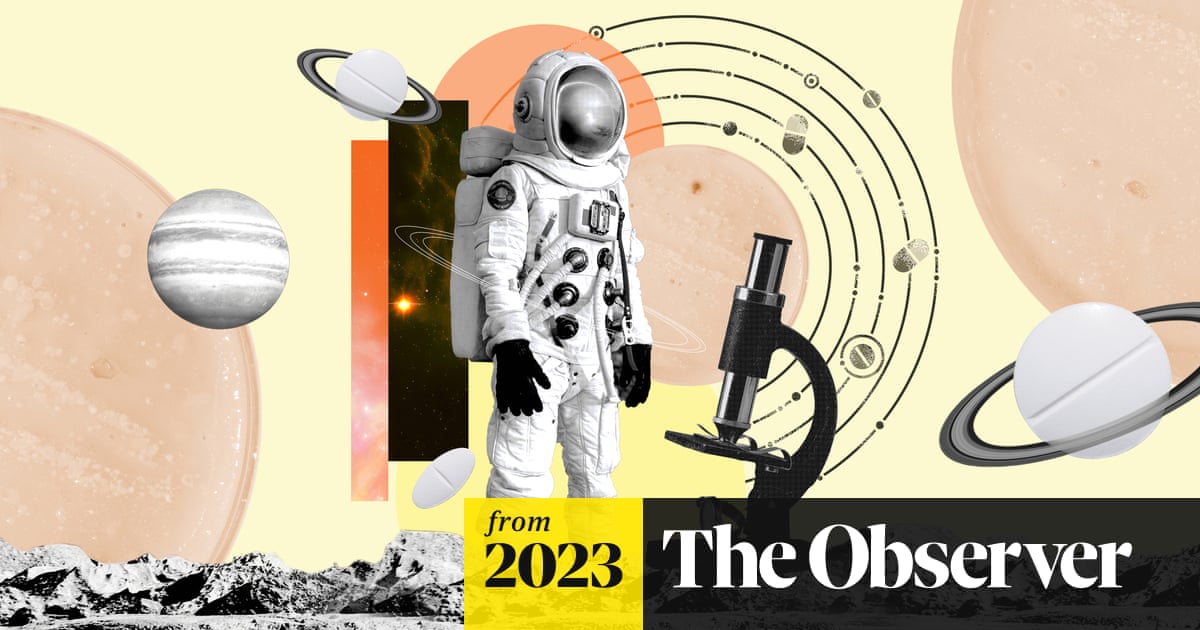

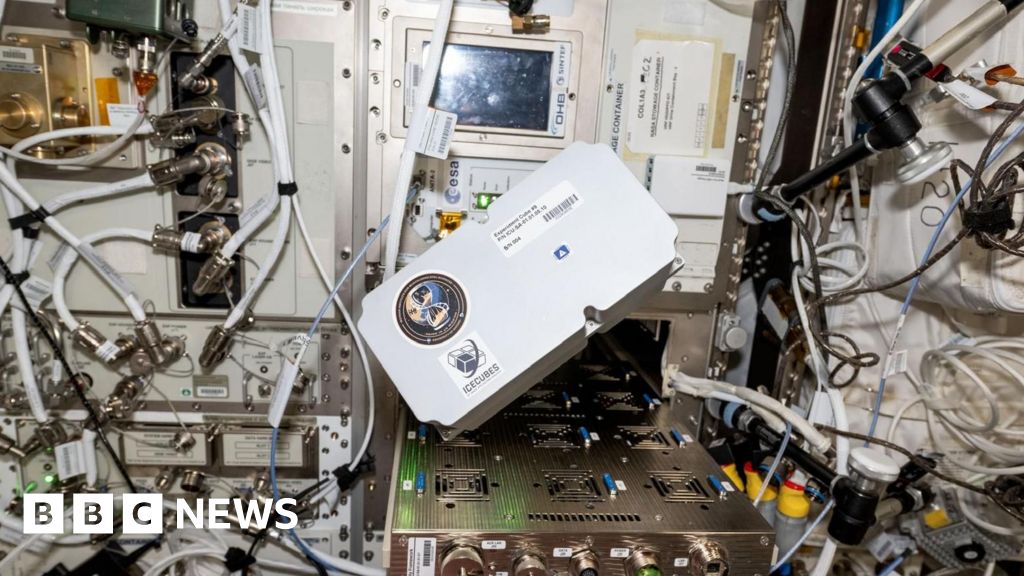
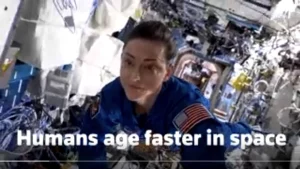



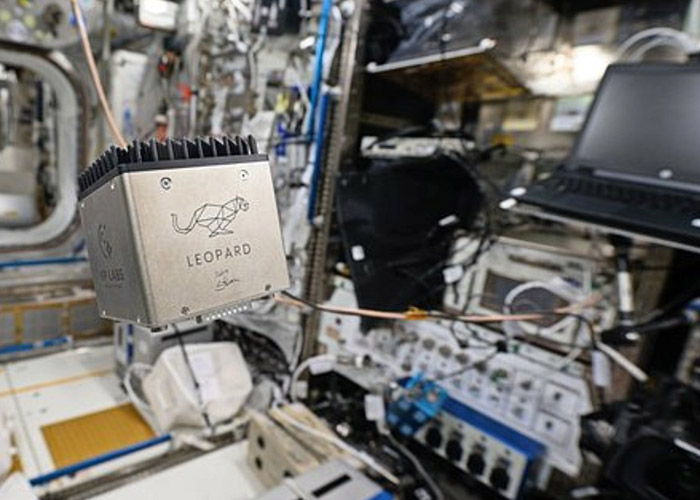

Relevant documents
